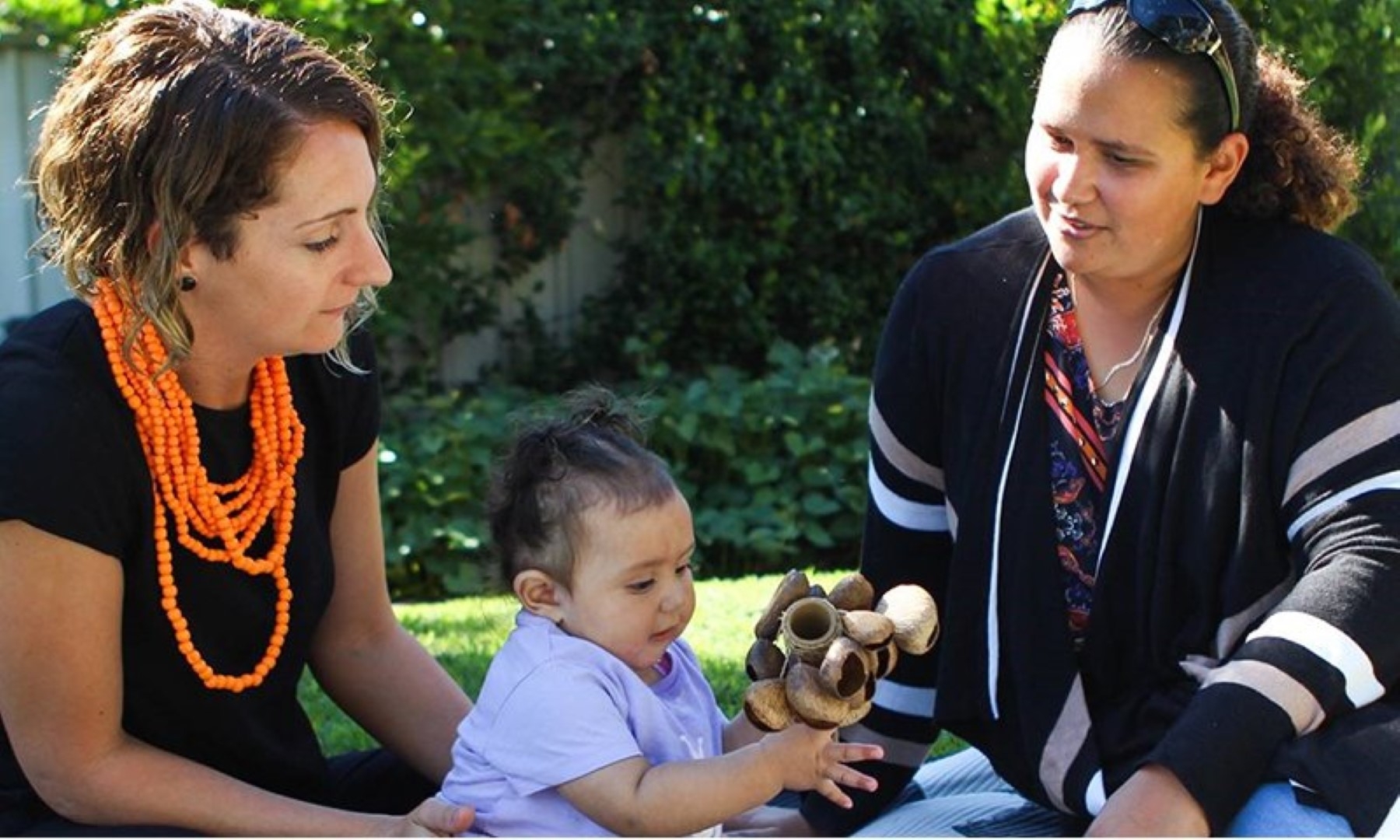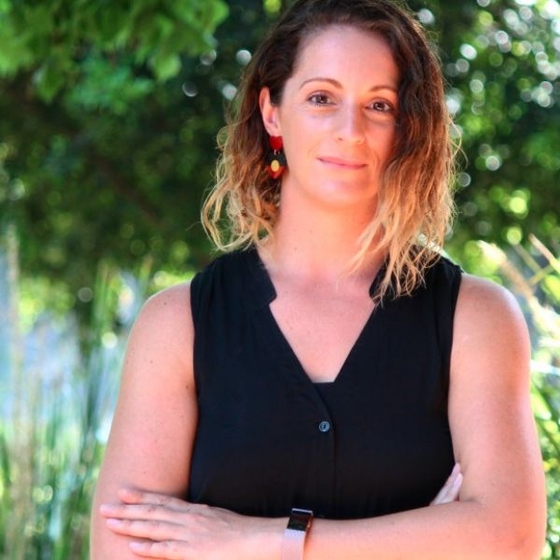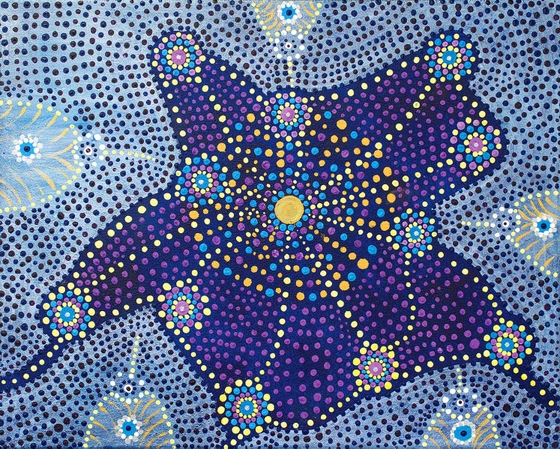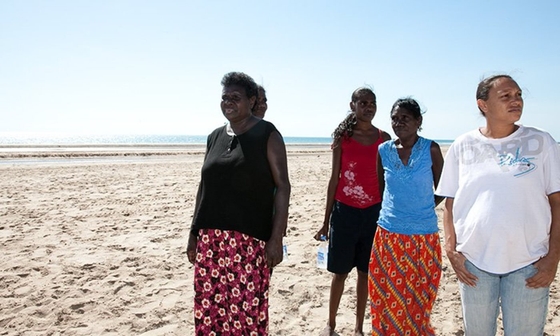
Q & A with Michelle Kennedy (Bovill)
Co-developing health information appropriate for Aboriginal and Torres Strait islander communities.
Heart Foundation researcher Michelle Bovill works with Aboriginal and Torres Strait Islander women and their health providers to co-develop meaningful programs to empower Aboriginal and Torres Strait Islander people to be smoke free.
A Wiradjuri woman, Dr Bovill says it is important to make sure smoking cessation information and programs are developed specifically for and by Aboriginal and Torres Strait Islander peoples.
By using Indigenous research methods Dr Bovill aims to re-write the deficit based narratives that surround Aboriginal health and empower communities to be engaged and co-own the research process.
The most recent article published in the International Journal of Environmental Research and Public Health, articulates the incorporation of Indigenous research methods, community engagement approaches and the protocol for her current project “Which Way? Smoking Cessation” titled Building an Indigenous-Led Evidence Base for Smoking Cessation Care among Aboriginal and Torres Strait Islander Women during Pregnancy and Beyond: Research Protocol for the Which Way?
The article was co-written with partnering Aboriginal communities on the project who are working co-developing an Indigenous-led approach to smoking cessation.
Dr Bovill has received three Heart Foundation grants including:
- 2016 Australian Indigenous Scholarship Scholarship – project entitled “Culturally responsive approaches for the empowerment of Aboriginal and Torres Strait Islander women in smoking cessation care”.
- 2019 Aboriginal and Torres Strait Islander Award – this is a two-year project entitled “Wambinya gunhi (supporting mothers) to quit smoking during pregnancy”.
- 2020 Aboriginal and Torres Strait Islander Award – a three-year project entitled “Yanhiyanirra (come to one’s assistance) Quit Pack to support smoking cessation among Aboriginal and Torres Strait Islander people who smoke: a feasibility study”.
What area of research do you work in?
My research is conducted in partnership with Aboriginal and Torres Strait Islander people and Aboriginal Community Controlled Health Services. My research focus is smoking cessation, but more specifically in co-designing effective and meaningful smoking cessation programs for and by Aboriginal and Torres Strait Islander peoples.
How did you get into research?
I saw a job advertised for a short-term Aboriginal Research Assistant at the University of Newcastle, the role was conducting qualitative interviews and I already had experience with qualitative research in my honours and masters degrees, so I applied. I was in a place of transition after the sudden loss of an uncle and was looking for a new direction to help my healing journey.
What are some of the key findings of your research to date?
My PhD research found that Aboriginal and Torres Strait Islander women who continue to smoke are significantly reducing their cigarette intake during pregnancy and most often this is on their health professionals advice. Aboriginal and Torres Strait Islander women want help from their health professionals to quit smoking, but this support is often inconsistent and weak.
How important was funding from the Heart Foundation for your work?
The funding from the Heart Foundation supported my PhD, allowing me to support my young family and focus on my research. I was able to complete my PhD in less than three years and was awarded an NHMRC Early Career Fellowship before submission of my thesis. The awards I have received since completing my PhD have allowed me to conduct my research in strong partnership and collaboration with Aboriginal communities in New South Wales. The funding also supports the training and employment of two Aboriginal women currently studying medicine at the University of Newcastle to work as Research Assistants on the projects; building the next generation of Aboriginal health clinicians and researchers.
What are you currently researching?
My current research projects are all prioritised by and for Aboriginal and Torres Strait Islander communities. Funded projects including Ear Health, Trauma Informed Public Health, Smoking Cessation and Aboriginal Health Research Ethics.
In 2021 I am leading two new projects:
- Yanhiyanirra (come to one’s assistance) Quit Pack to support smoking cessation among Aboriginal and Torres Strait Islander people who smoke: a feasibility study. (funded by the National Heart Foundation).
Yindymarra (to honour, respect) Aboriginal experience in the conduct of health research: the development of practical recommendations to enhance the uptake of ethical research guidelines (funded by the NHMRC Ideas Grant)
What progress and discoveries have you made?
In 2020 the Which Way? Smoking Cessation project launched an online survey to understand the smoking and quitting experiences of Aboriginal and Torres Strait Islander women of reproductive age and their desired approaches to smoking cessation. The survey engaged 442 Aboriginal and Torres Strait Islander women from across the country with results currently being analysed. This study further validated my previous qualitative findings that Aboriginal and Torres Strait Islander women are changing their smoking behaviours and making frequent quit attempts during pregnancy, most women quit smoking, stop smoking for months and/or reduced their consumption during pregnancy. My previous qualitative research found that health providers were often advising reduction of cigarette consumption not quitting. However, frequently it is only measured if women quit smoking yes or no. This is problematic and often fails to present balanced data to inform what is happening and what is needed to achieve smoking cessation. Our survey also found that 68% of Aboriginal and Torres Strait Islander women want the support of Aboriginal Health Workers to achieve smoking cessation. We will soon launch a survey in partnership with the peak body of Aboriginal and Torres Strait Islander Health Workers and Practitioners to understand Aboriginal health workers experience, capacity and resources to deliver smoking cessation care to Aboriginal and Torres Strait Islander women and their attitudes to approaches (requested by Aboriginal women and informed by the literature) to smoking cessation.
Do you have a message for Heart Foundation supporters?
Thank you so much for your generous support. Australia needs more Aboriginal and Torres Strait Islander researchers to address our health inequalities bringing together Indigenous knowledges and voices to the health research space. Through your support Aboriginal and Torres Strait Islander researchers can engage our communities in research on a new level built on respect, honesty and trust. Respectful and ethical research with Aboriginal and Torres Strait Islander communities requires significant time, your generous scholarship offers us the ability to do this. Mandaang Guwu (Thank you).
You might also be interested in...

Yanhiyanirra (come to one’s assistance) Quit Pack to support smoking cessation
Dr Michelle Bovill, The University of Newcastle - 2020 Aboriginal and Torres Strait Islander Award

Aboriginal heart health website
Visit the St Vincents Hospital NSW and Heart Foundation Aboriginal heart health website for more information

Pilbara Aboriginal Heart Health Program
The Pilbara Aboriginal Heart Health Program works with local communities to improve heart health.
Last updated28 February 2024
Last reviewed21 February 2024